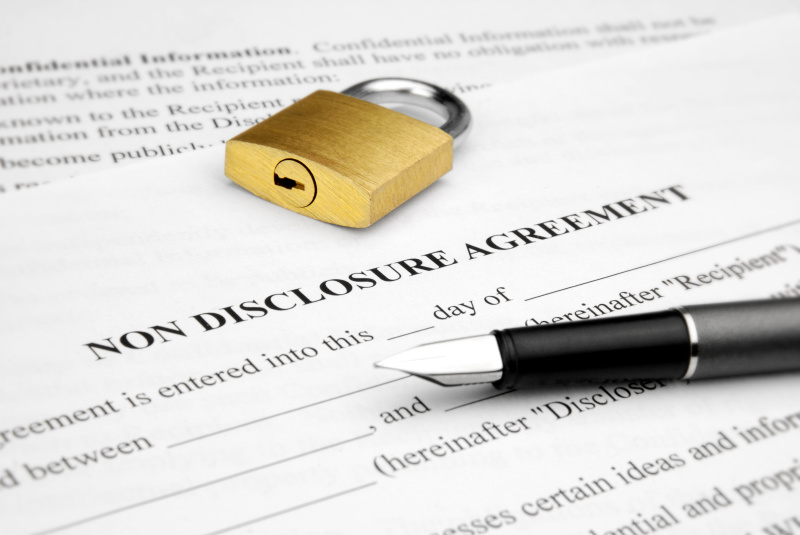What is an NDA?
A non-disclosure agreement (NDA) is a legally binding contract that creates a confidential relationship between the owner of a piece of information and the person(s) that information is disclosed to.
The contract ensures that the recipient of the information will not share, distribute, replicate, sell, or in any way release the information to another party. Generally, an NDA serves three functions:
- Protects sensitive information
- Protects patent rights of a new invention
- Outlines what information is private and what is not
If the recipient of the information breaches the contract, then the owner can take legal action against the recipient for damages.
What is included in an NDA?
An NDA generally includes 4 important elements:
- Definition of confidential information – This establishes the boundaries of the agreement and lists the categories of confidential information to be protected.
- Exclusions – This lets the recipient know what information they are *not* obligated to protect.
- Obligations – This details what the recipient is obligated to protect
- Time Periods – This lets the recipient know how long they are obligated to protect the information.
Miscellaneous provisions in the contract detail other matters such as which state’s laws apply if the agreement is breached, whether arbitration will be used in a dispute, and/or whether attorney fees will be awarded to the prevailing party.
When do you need an NDA?
NDAs are commonplace in business, but can be used anytime you want to keep a piece of information confidential. Some instances in which an NDA would be useful are:
- You have a business idea you want to present to potential investors.
- You deal with information regarding clients or customers.
- You’re a lab worker with access to patient test results.
- You’re showing a new product or piece of technology to a prospective buyer.
- You’re sharing financial or marketing information to a potential partner or investor.
- You’re showing an original screenplay to producers or editors.
How do you draft an NDA?
If you’re unfamiliar with drafting an NDA you will want to seek legal counsel to ensure your NDA provides maximum protection of the proprietary information. It’s a good idea to have it reviewed, or completely drafted, by an experienced attorney.
The lawyers at Stanko, Senter, & Mitchell are well-versed in contract law and business law, and will gladly help you draft an NDA that protects you and your information.

